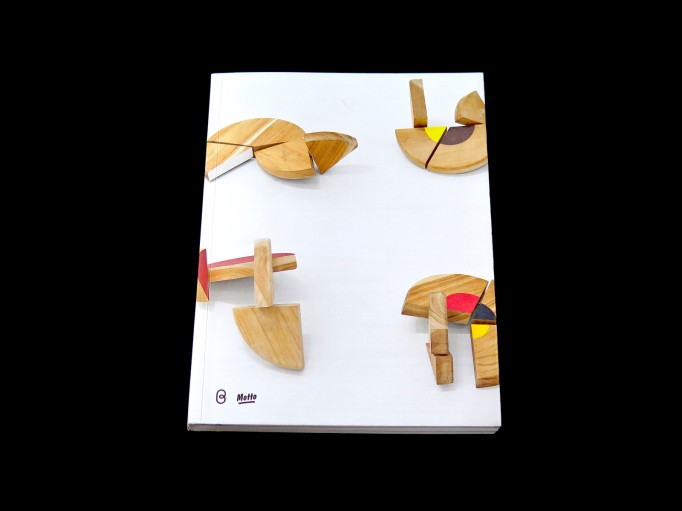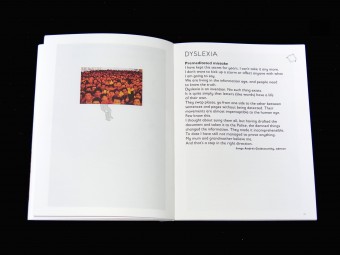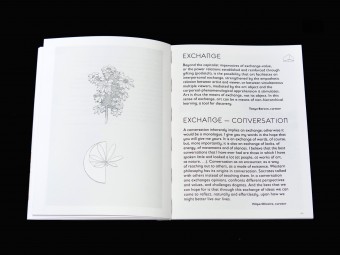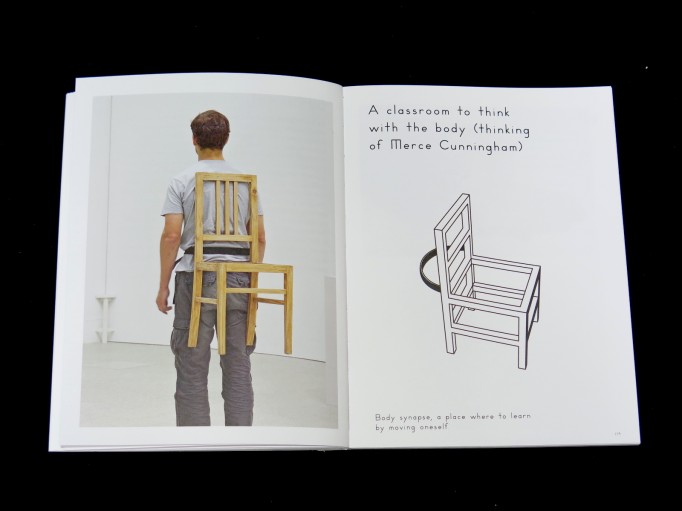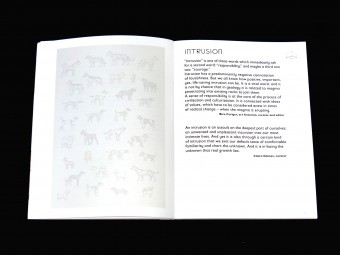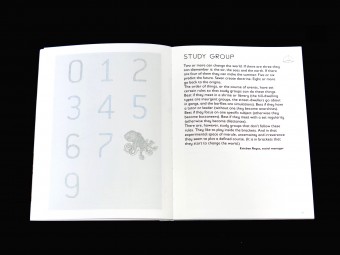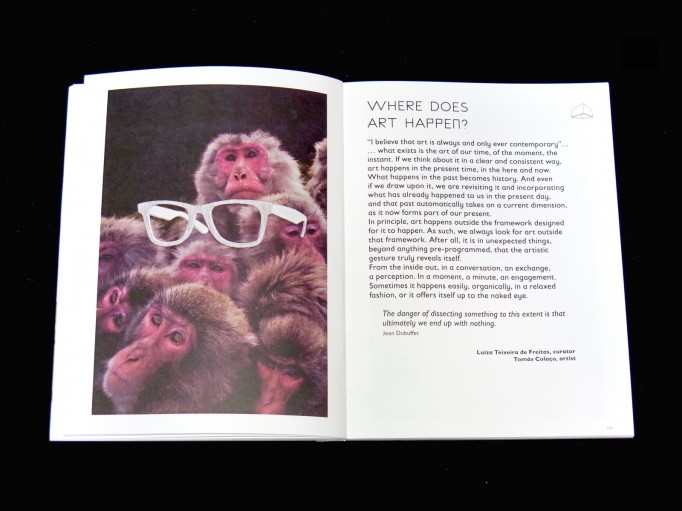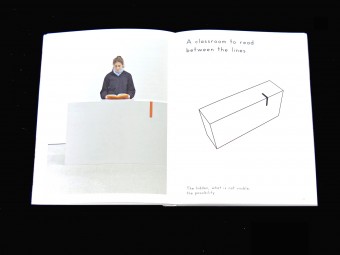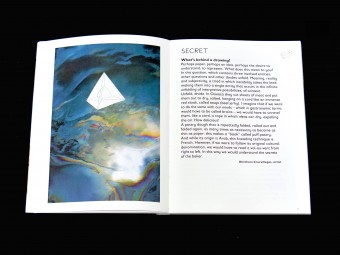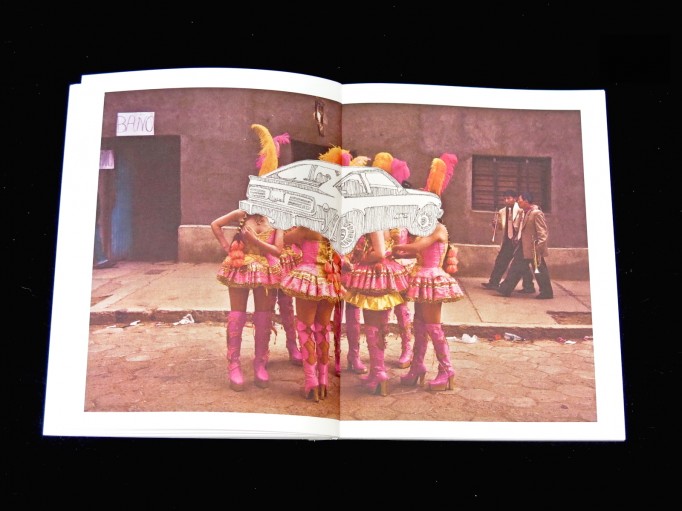Four variations on nothing or talking about that which has no name. Nicolás Paris. Filipa Oliveira, Motto, Museu Coleção Berardo.
Posted in Motto Books on June 14th, 2016 by adminTags: Filipa Oliveira, Museu Coleção Berardo
Four variations on nothing or talking about that which has no name is conceived as a process of examination in which art is seen as a series of encounters and situations that happen in time. Four variations, four rooms, four concepts: tool, method, idea and system – these are the underpinnings of the thought and work of Paris.
The “tools” are drawings, educational exercises, utensils, games, prototypes. Here, thought is seen as an exercise, while the tools are there to help with setting out ideas. They are not mere techniques of representation, but rather comprise a system of thought that allows us to exchange views.
The “methods” are traditionally taught in a school-style learning environment. By rethinking and playing with the concept of the classroom, the architecture is devised by Paris in such a way that it is transformed into a working process itself, as well as a set of routines that give rise to spaces of exchange in which social skills and learning habits are developed. Each classroom, where the viewer decides what he or she wants to learn or unlearn, is a structure in which the artist’s interests cross with the visitors’ experiences. Every model offers a space to discover relationships, an architecture that serves as a trigger for thinking about different ways of socializing, in a process of learning and failure combined.
The exhibition shifts scale in order to tackle the “idea”. In a small architectural installation, an object suggests that an idea is something that is always being constructed and developed. It is something transformative that we cannot fully access; something that can grow in a number of possible ways, that emerges in time, and that lies in the hands of each viewer.
Under normal circumstances, education would be the system and architecture the method, but in this exhibition this state of affairs is reversed. Education is now seen as a conceptual, logical institution that allows us to learn by association. It is a process that provides room for thought and generates ideas, sparking one or more experiences. A set of short films that are at once demonstrations of the use of the tools and brief poetic essays, and which activate ideas and processes that have already been presented in the exhibition.
19 €
Buy it
Deprecated: link_pages is deprecated since version 2.1.0! Use wp_link_pages() instead. in /home/clients/04badc5f584cd5c2e11ec172df35785c/web/site/wp-includes/functions.php on line 5326

